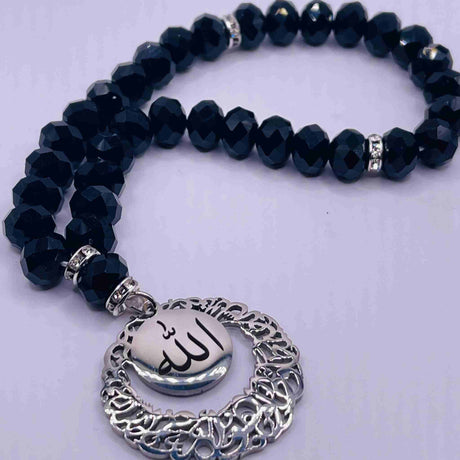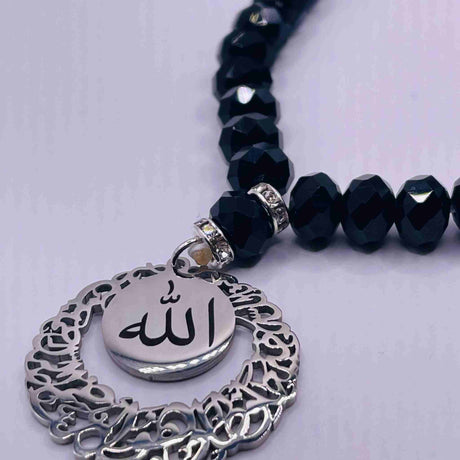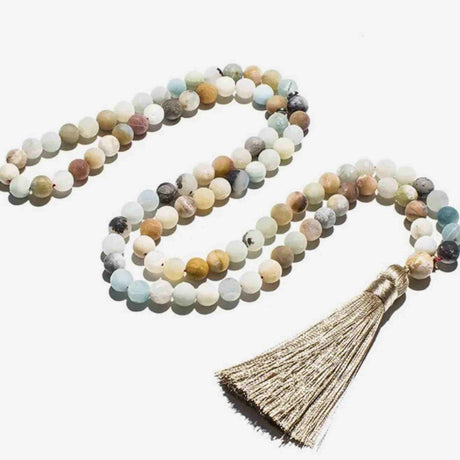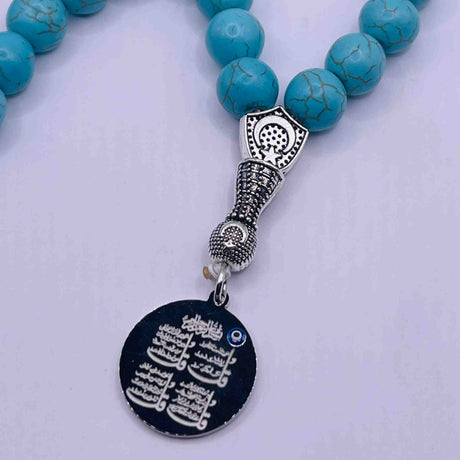Key Takeaways:
- Praising Allah: Reciting "Subhanallah" and other phrases in Tasbih emphasizes praising and glorifying Allah.
- Continuous Worship: The phrases reflect a state of perpetual worship and gratitude to Allah.
- Spiritual Practice: These recitations strengthen a believer's spiritual connection and devotion.
Then start Tasbih by saying:
"Ilahi Rabbi Subhanallah" x 33 Times
إلهي ربي سبحان الله
This phrase can be translated to "My God, my Lord, Glory be to Allah"
"Subhanallah" x 33 Times
سُبْحَانَ اللَّهِ
This phrase i "Glory be to Allah". It is used to praise and glorify Allah.
When the number of tasbeeh is complete, continue Dhikr with the following recitations:
"Subhaanallahi Wabihamdihi Daa 'iman Qoo 'imann Abada"
سُبْحَانَ اللَّهِ وَبِحَمْدِهِ دَائِمًا قَائِمًا أَبَدًا
This phrase is an expression of glorification and praise to Allah, indicating a perpetual and continuous state of worship and gratitude to Allah.
Our carefully chosen Islamic products, can help you with your daily spiritual practices.
Read our blog posts to find out more about how important Tasbih and Dhikr are in daily prayer.
Frequently Asked Questions:
Q: What is the significance of saying "Subhanallah" 33 times in Tasbih?
A: Reciting "Subhanallah" 33 times is a form of glorifying Allah, acknowledging His perfection and majesty. It is a practice that reinforces humility and devotion in a believer's heart.
Q: What does the phrase "Subhaanallahi Wabihamdihi Daa 'iman Qoo 'imann Abada" mean?
A: This phrase means "Glory be to Allah and all praise to Him, perpetually and continuously." It signifies ongoing worship and gratitude to Allah, emphasizing a constant state of remembrance and praise.
Q: How does Tasbih contribute to a believer's spiritual life?
A: Tasbih helps in maintaining a continuous connection with Allah, promoting mindfulness of His presence and reinforcing the habit of regular praise and gratitude, which strengthens faith and devotion.
Q: Can Tasbih be performed at any time of the day?
A: Yes, Tasbih can be performed at any time. It is particularly beneficial after prayers, but believers are encouraged to engage in this practice throughout the day to maintain a constant state of remembrance of Allah.
Q: What are the benefits of incorporating Dhikr and Tasbih into daily practice?
A: Incorporating Dhikr and Tasbih into daily practice helps in cultivating a closer relationship with Allah, providing spiritual tranquility, and fostering a sense of peace and protection through constant remembrance.

























